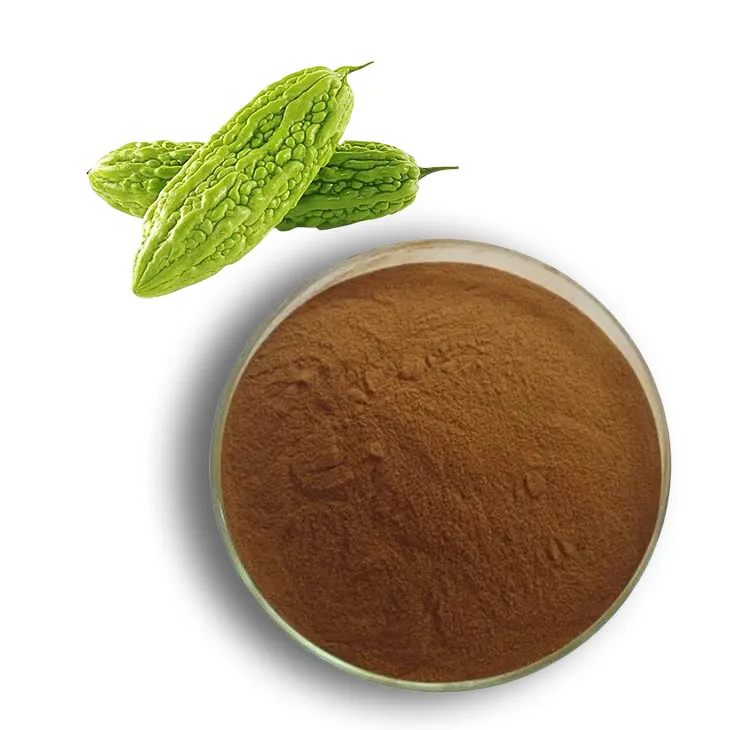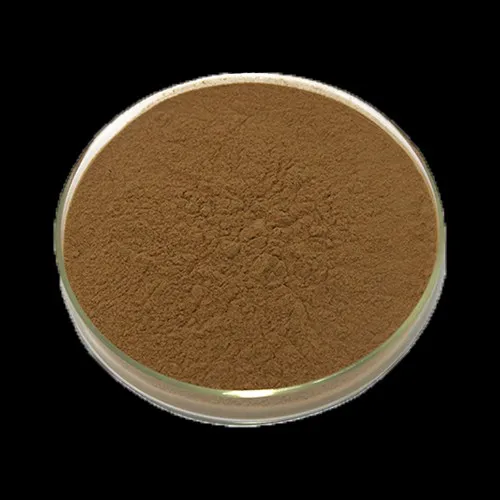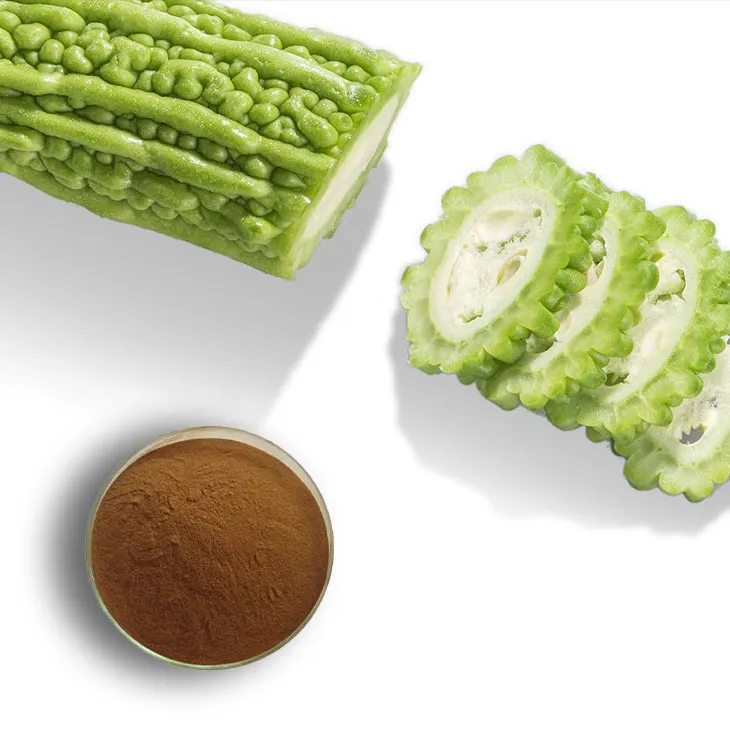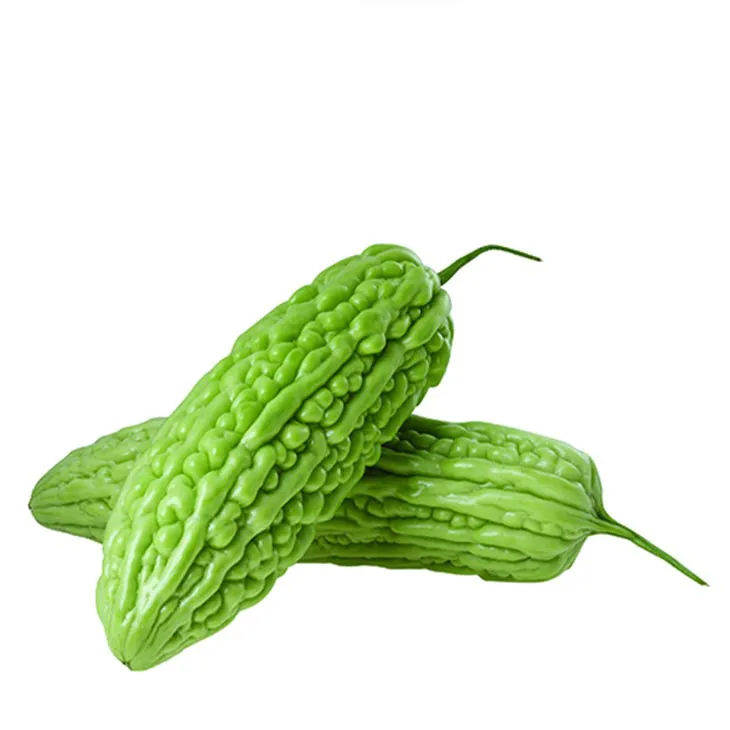- 0086-571-85302990
- sales@greenskybio.com
4 Things Consumers and Manufacturers Should Know about Bitter Melon Extract.
2024-12-18

1. Introduction
Bitter Melon Extract has been gaining increasing attention in recent years, both in the consumer market and among manufacturers. This natural extract, derived from the bitter melon plant, is believed to possess a variety of properties that could be beneficial for health. However, there are several important aspects that both consumers and manufacturers need to be aware of. This article will explore four key areas that are relevant to both parties.

2. For Consumers
2.1 Health Implications
Bitter Melon Extract is often associated with potential health benefits. It is rich in various nutrients and bioactive compounds. For example, it contains vitamins such as vitamin C, which is important for the immune system. Additionally, it has minerals like potassium that play a role in maintaining proper heart function.
One of the most studied aspects of Bitter Melon Extract is its potential effect on blood sugar levels. Some research suggests that it may help in regulating blood glucose in people with diabetes or those at risk of developing diabetes. It is thought to work by improving insulin sensitivity or by directly affecting the way the body metabolizes glucose. However, it is important to note that while these findings are promising, more research is needed to fully understand its efficacy and to determine the appropriate dosage for different individuals.
2.2 Safety Considerations
Although bitter melon extract is generally considered safe for consumption in moderate amounts, there are some safety aspects that consumers should be aware of. Firstly, due to its bitter taste, it may cause gastrointestinal discomfort in some people. This can include symptoms such as nausea, vomiting, or diarrhea.
Moreover, bitter melon extract may interact with certain medications. For example, if you are taking medications for diabetes or blood pressure, it is crucial to consult your doctor before starting to use bitter melon extract. This is because it could potentially enhance or interfere with the effects of these medications, leading to unexpected changes in blood sugar or blood pressure levels.
Pregnant and breastfeeding women should also be cautious. There is limited research on the safety of bitter melon extract during pregnancy and lactation, so it is best to avoid using it during these periods to ensure the safety of the mother and the baby.
2.3 How to Use
Bitter melon extract is available in various forms, including capsules, tablets, and liquid extracts. When using bitter melon extract in capsule or tablet form, it is important to follow the recommended dosage instructions provided on the product label. Typically, the dosage may vary depending on the concentration of the extract and the intended use.
If you are using a liquid extract, it can be diluted in water or juice before consumption. It is advisable to start with a small amount and gradually increase the dosage while observing any potential reactions in your body. Also, it is a good practice to take it with food to reduce the likelihood of gastrointestinal discomfort.

3. For Manufacturers
3.1 Product Consistency
Manufacturers of bitter melon extract face the challenge of ensuring product consistency. This involves several factors. Firstly, the quality of the raw materials, i.e., the bitter melon itself, can vary depending on factors such as the source of cultivation, season of harvest, and agricultural practices used. To achieve consistency, manufacturers need to carefully select and source their raw materials from reliable suppliers.
The extraction process also plays a crucial role in product consistency. Different extraction methods, such as solvent extraction or cold - press extraction, can yield extracts with different compositions and potencies. Manufacturers should standardize their extraction processes to ensure that each batch of bitter melon extract has the same quality and efficacy. This may involve using advanced equipment and strict quality control measures at every step of the extraction process.
3.2 Regulatory Compliance
The production and sale of bitter melon extract are subject to regulatory requirements in different countries. Manufacturers need to be well - versed in these regulations to ensure legal compliance. In some regions, bitter melon extract may be classified as a dietary supplement, while in others it may be considered a food ingredient or even a medicinal product.
For example, in the United States, dietary supplements are regulated under the Dietary Supplement Health and Education Act (DSHEA). Manufacturers must ensure that their products are safe, properly labeled, and do not make unsubstantiated health claims. In the European Union, regulations regarding food supplements are also strict, with requirements for ingredient safety, labeling, and quality control.
To comply with these regulations, manufacturers need to invest in quality assurance systems, conduct safety and efficacy studies when required, and ensure accurate and transparent labeling of their products. This includes providing information about the ingredients, dosage, potential side effects, and any contraindications.
3.3 Market Trends
Keeping up with market trends is essential for manufacturers of bitter melon extract. The demand for natural and plant - based products has been steadily increasing in recent years, driven by consumer preferences for more natural and holistic approaches to health. This presents an opportunity for manufacturers to capitalize on the growing interest in bitter melon extract.
However, the market is also highly competitive. Manufacturers need to differentiate their products through factors such as product quality, unique formulations, and effective marketing strategies. For example, some manufacturers may choose to develop bitter melon extract products that are combined with other complementary ingredients to enhance their health benefits or improve the taste.
Another trend in the market is the increasing demand for sustainable and ethically sourced products. Consumers are becoming more conscious of the environmental and social impacts of the products they purchase. Manufacturers can gain a competitive edge by sourcing their bitter melon from sustainable farms and promoting their ethical and sustainable practices.

4. Conclusion
In conclusion, bitter melon extract has significant potential in both the consumer and manufacturing realms. For consumers, being informed about its health implications, safety, and proper use is essential for making wise decisions regarding its consumption. Manufacturers, on the other hand, need to focus on product consistency, regulatory compliance, and market trends to produce high - quality, legal, and market - competitive products. By understanding these four key areas, both consumers and manufacturers can navigate the world of bitter melon extract more effectively.

FAQ:
Q1: What are the potential health benefits of bitter melon extract for consumers?
Some potential health benefits of bitter melon extract for consumers may include its possible role in blood sugar regulation. It may help lower blood glucose levels, which can be beneficial for those with diabetes or at risk of developing it. Additionally, it is believed to have antioxidant properties that can help combat oxidative stress in the body, potentially reducing the risk of certain chronic diseases. However, more research is still needed to fully confirm and understand these effects.
Q2: Are there any safety concerns associated with bitter melon extract?
Yes, there are some safety concerns. Bitter melon extract can cause side effects in some people. It may lead to gastrointestinal issues such as nausea, vomiting, and diarrhea, especially when consumed in large amounts. Also, it may interact with certain medications. For example, it could potentially enhance the effects of hypoglycemic drugs, leading to dangerously low blood sugar levels. Pregnant and breastfeeding women should also be cautious as there is not enough evidence to confirm its safety during these periods.
Q3: How should consumers use bitter melon extract?
Consumers should follow the recommended dosage instructions on the product label. It can be consumed in various forms such as capsules, tablets, or as a liquid extract. If using it for potential blood sugar management, it is important to monitor blood sugar levels regularly. It is also advisable to start with a small dose and gradually increase it while observing for any adverse reactions. However, it is always best to consult a healthcare provider before starting to use bitter melon extract, especially if one has underlying health conditions or is taking other medications.
Q4: What is important for manufacturers regarding product consistency?
For manufacturers, ensuring product consistency is crucial. This involves using standardized extraction methods to obtain a consistent amount of active compounds in each batch of bitter melon extract. They need to source high - quality bitter melon raw materials consistently. Quality control measures should be in place throughout the manufacturing process, from raw material inspection to final product testing. This helps to ensure that consumers receive a product with reliable and predictable effects each time they purchase it.
Q5: How can manufacturers ensure regulatory compliance when producing bitter melon extract?
Manufacturers should first be aware of the regulations in the regions where they plan to sell their products. This may include requirements for product labeling, such as clearly stating the ingredients, dosage instructions, and potential side effects. They need to comply with safety and quality standards set by regulatory agencies. For example, in some countries, there may be specific regulations regarding the maximum allowable levels of certain compounds in dietary supplements. Manufacturers should also keep up - to - date with any changes in regulations and be prepared to adjust their production processes accordingly.
Q6: What are the current market trends related to bitter melon extract?
The current market trends for bitter melon extract show an increasing interest in natural health products. There is a growing demand from consumers who are looking for alternative ways to manage health conditions, especially those related to blood sugar and weight management. The extract is also being incorporated into a wider range of products, such as functional foods and beverages. However, competition is also increasing, so manufacturers need to focus on product differentiation, such as through improved formulations or additional health claims supported by research.
Related literature
- The Potential Health Benefits of Bitter Melon: A Review of the Current Literature"
- "Bitter Melon Extract: Safety and Efficacy in Diabetes Management"
- "Manufacturing Standards for Herbal Extracts: The Case of Bitter Melon"
- "Market Trends in Natural Health Supplements: Bitter Melon Extract as a Case Study"
- ▶ Hesperidin
- ▶ Citrus Bioflavonoids
- ▶ Plant Extract
- ▶ lycopene
- ▶ Diosmin
- ▶ Grape seed extract
- ▶ Sea buckthorn Juice Powder
- ▶ Fruit Juice Powder
- ▶ Hops Extract
- ▶ Artichoke Extract
- ▶ Mushroom extract
- ▶ Astaxanthin
- ▶ Green Tea Extract
- ▶ Curcumin
- ▶ Horse Chestnut Extract
- ▶ Other Product
- ▶ Boswellia Serrata Extract
- ▶ Resveratrol
- ▶ Marigold Extract
- ▶ Grape Leaf Extract
- ▶ New Product
- ▶ Aminolevulinic acid
- ▶ Cranberry Extract
- ▶ Red Yeast Rice
- ▶ Red Wine Extract
-
Camu Camu Extract
2024-12-18
-
American Ginseng Root Extract
2024-12-18
-
Horse Chestnut Extract
2024-12-18
-
Polygonum multiflorum extract
2024-12-18
-
Yellow Pine Extract
2024-12-18
-
Medicinal Marshmallow Extract
2024-12-18
-
Jujube Extract
2024-12-18
-
White mustard seed extract
2024-12-18
-
Rosemary extract
2024-12-18
-
Red Wine Extract
2024-12-18





















